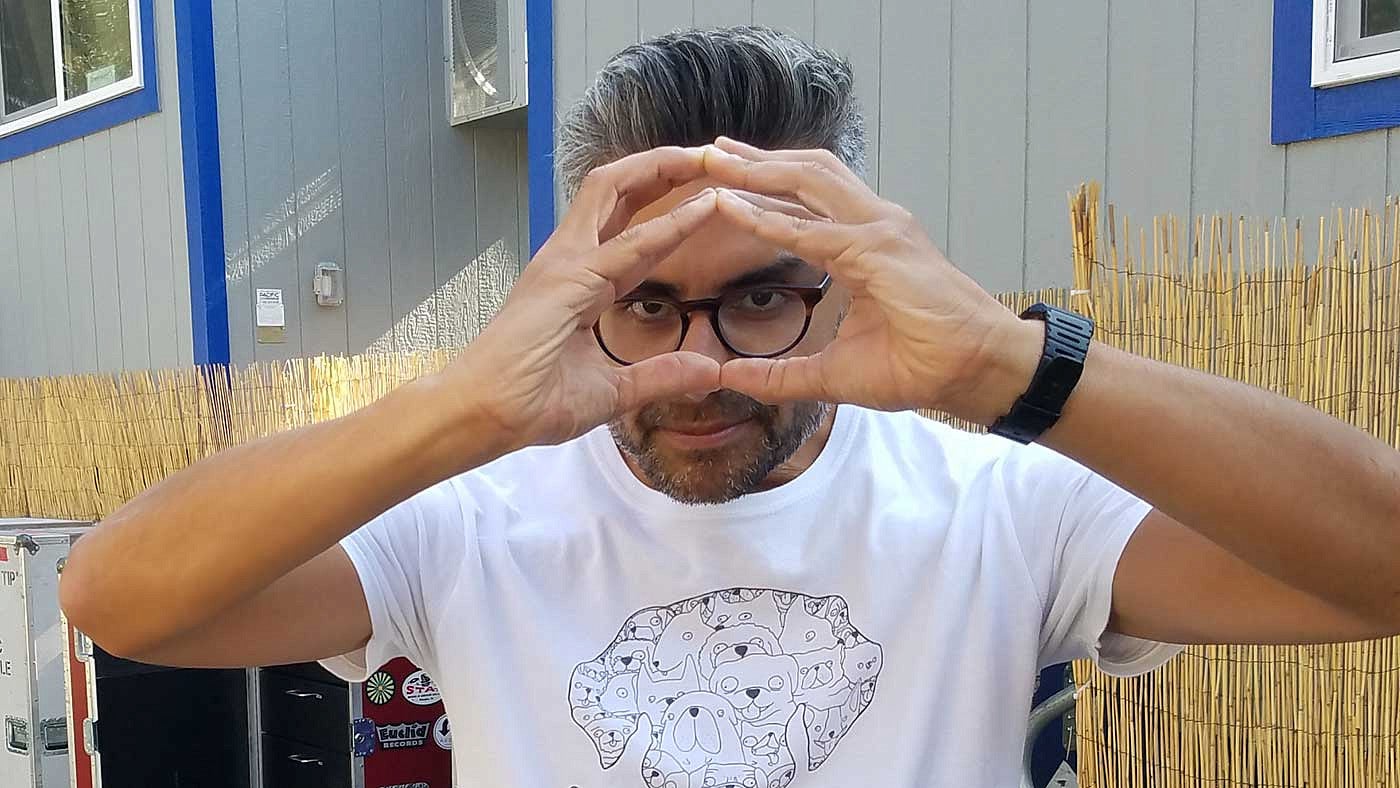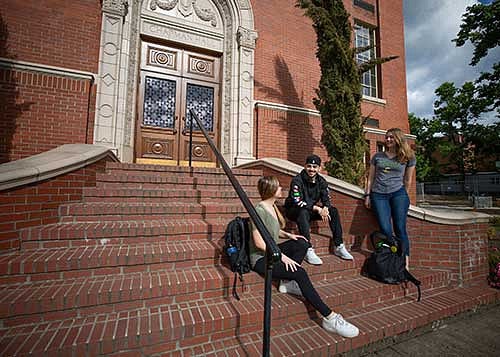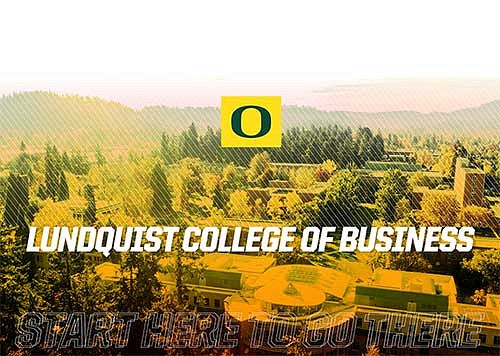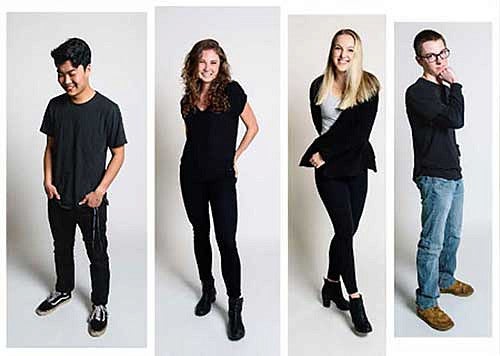How Death Cab for Cutie’s Dave Depper ran from the School of Music and Dance to rock stardom
On the afternoon of September 24, 2018, a lone figure laced up his scuffed Saucony Triumph running shoes and hit the streets of Eugene.
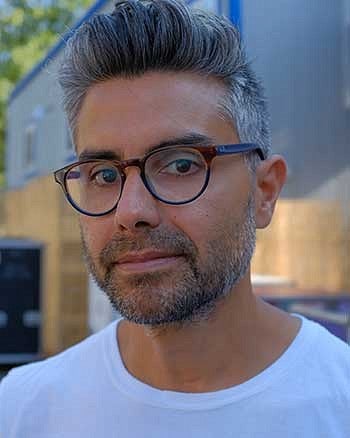
He ran down Agate Street, past the Jaqua Center ringed with its clear pool filled with paddling ducks, and past the Counseling Center with its garden bed of yellow sunflowers craning their green necks skyward. His steps took him to Hayward Field, the legendary track and field venue where 20 world records have been set, and McAlister Hall, where he lived as a student.
From there he crossed the Frohnmayer footbridge over the Willamette River, cut through Alton Baker Park and across Pre’s Trail, passed Autzen Stadium, and checked out Duck’s Village—another place he’d lived while studying at the UO. The final stop on his magical history tour took him to a house behind Track Town Pizza that he’d rented while wrapping up his bachelor’s degree. After logging several miles on his nostalgic run, he returned to his hotel to rest.
Several hours later, he stepped onto the stage in a packed Hult Center and launched into “I Dreamt We Spoke Again” with his eight-time Grammy-nominated band, Death Cab for Cutie. For the next two hours the band tore through a number of its biggest hits, keeping the raucous Eugene crowd singing along to “I Will Follow You into the Dark,” “Soul Meets Body,” “I Will Possess Your Heart,” and more, just one-and-a-half miles from where he, the group’s guitarist and keyboard player, once studied.
Dave Depper, BS ’02 (computer and information science), was home.
Well, in a manner of speaking, anyway.
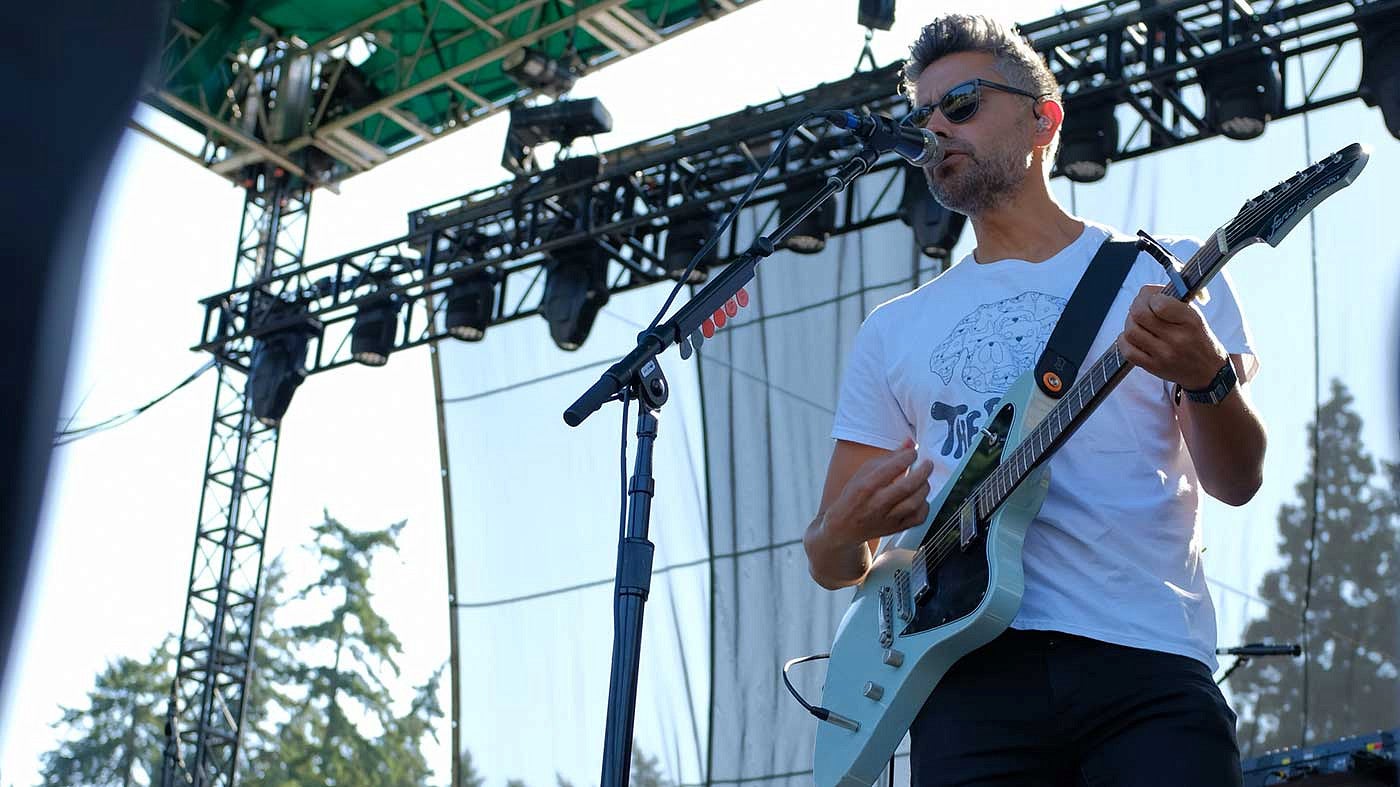
Depper hails from Bend and went to Mountain View High School, the alma mater of fellow Duck great Ashton Eaton, BA ’10 (psychology). The son of Linda and Joel—the latter a classical pianist—Depper began tickling the ivories at age five, with a brief break that began when he was, oh, about seven.
“My dad’s a really amazing pianist, and he, bless his heart, signed me up for piano lessons,” Depper says. “I hated them like every kid does, and stopped doing that after a year or two.”
Instead, he picked up a guitar and immersed himself in the music of the Beatles, David Bowie, Stevie Wonder, Prince, and Pink Floyd. Depper played in a number of garage bands in Bend, and once even opened for Rock and Roll Hall of Fame member Bonnie Raitt at the Deschutes County Fairgrounds.
That gave him a career goal—professional musician—but no road map of how to get there.
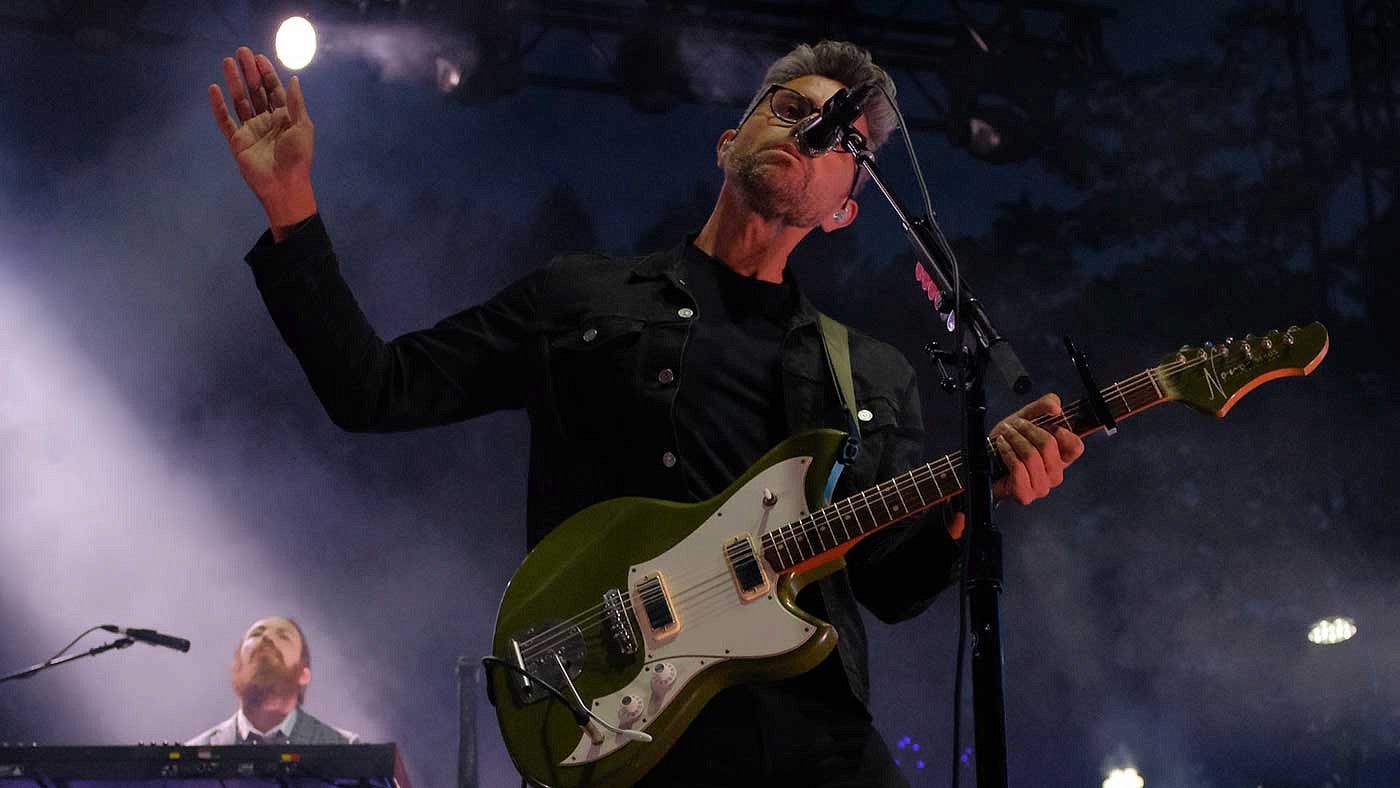
“I just figured I’d vaguely have some career in music, and that becoming a music major would lead to that,” he laughs.
When the time came to choose a college, he only applied to one. His friends were going to the University of Oregon, and he liked what he saw in the School of Music and Dance, so he picked up his guitar and moved to Eugene—and, upon his arrival, promptly sat right back down at a piano again.
“Their keyboard skills classes were amazing there, and were crucial to my development as a keyboard player,” Depper says. “Something I use constantly is chord inversion, and I learned that in class. It was something I had no concept of before, but I studied it intensely and now it’s become like a sixth sense to me when I play keyboard. It had a huge effect on my skills as a keyboardist.”
However, Depper soon began to feel burned out by music—“All I had done was eat, drink, and breathe music for two-and-a-half years,” he says. What’s more, as a student in the SOMD long before the music school added its BA and BS concentration in popular music and its audio production minor, he wasn’t sure that studying in a school known for producing the likes of Grammy-winning trumpeter Josh Deutsch, MMus ’09 (jazz studies), conductor Kelly Kuo, BA ’96 (music), and dancer Valerie Ifill, MFA ’09 (dance), would help him achieve rock stardom.
“If those classes had existed back then, I absolutely would’ve majored in them” Depper says of SOMD’s new offerings. “Popular music would’ve helped me later on.”
So, he followed his interest in computers—he wrote his first computer script when he was 10, and says he enjoys writing code the way others enjoy doing the Sunday crossword puzzle—and changed majors, enrolling in the computer and information science program in the College of Arts and Sciences.
Depper took classes with the likes of Nico Habermann Award winning computer science professor Jan Cuny and calculus professor Travis Kelm, and after graduating cum laude in 2002, he went to work as a software engineer for an e-learning company in Portland.
“The education I got from the UO was world class,” said Depper. “I got a great job immediately from it, and I directly used skills I had acquired there. It’s a really encouraging school, a good learning environment.”
Computer and Information Science
But Depper maintained his love of music and soon began playing bass in a number of bands—“It was an instrument that seemed to have a lot of employment opportunities available,” he says—and for the next decade he spent his days working at a desk, and his nights working on stages throughout the Rose City. He played with so many bands that the Portland Mercury once wrote, “If you have a band in Portland, he’s probably standing behind you right now holding a bass guitar.”
But while putting what he learned in SOMD and CAS to good use in his dual careers, Depper was also spending his free time enjoying the thing the UO may best be known for.
“I got into running whilst at the University of Oregon because I was dating a girl that I wanted to impress, and she was a very talented cross country runner,” he says. “She encouraged me to get in shape and join her on some runs, and then I joined an extracurricular cross country club. There’s no better town on planet Earth to start running in than Eugene, and it just became an immediate lifelong passion of mine.”
And running—just as much as what he learned in those SOMD keyboard classes—is how Dave Depper ended up on stage at the Hult Center. And the Red Rocks Amphitheatre. And the Hollywood Bowl. And at Lollapalooza. And in Singapore. And in Japan. (You get the picture.)
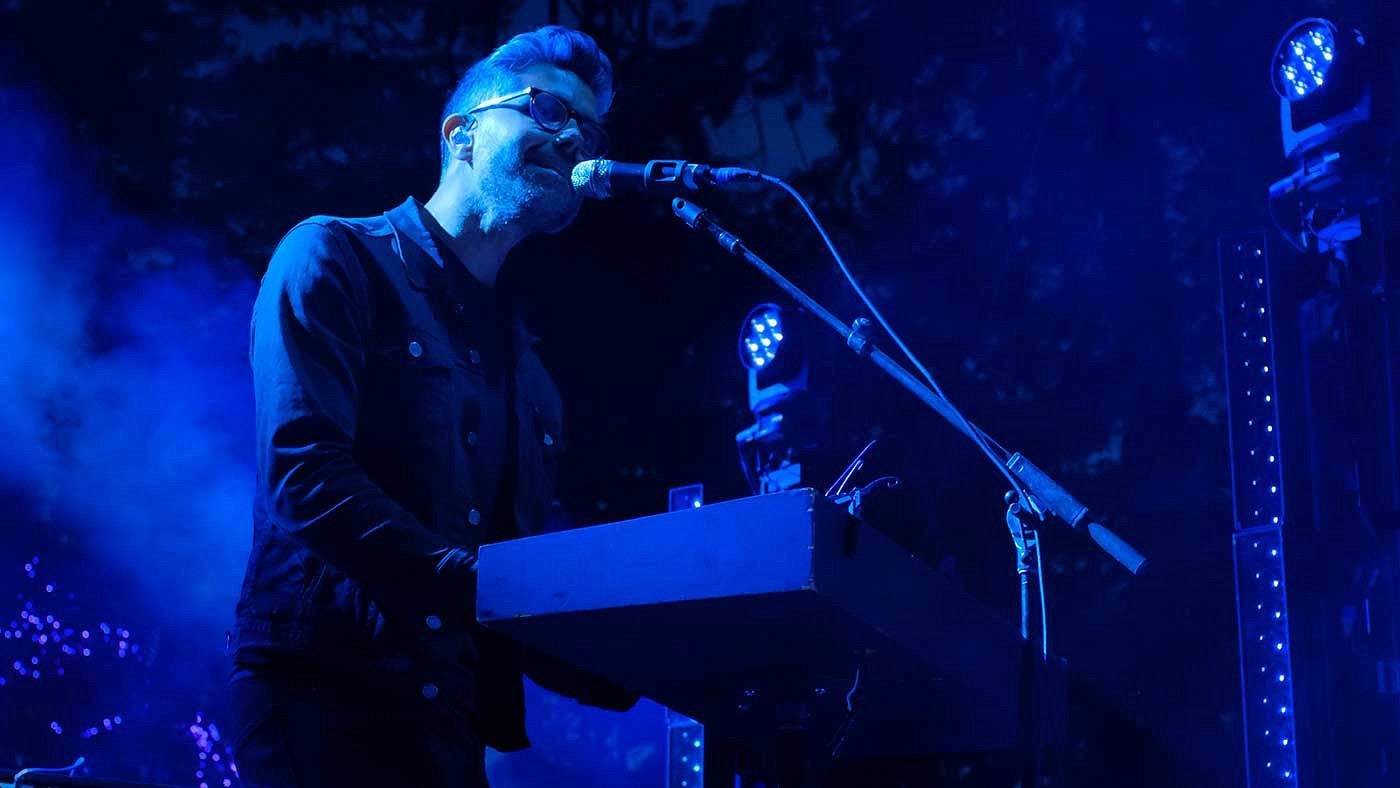
Death Cab for Cutie, formed in Bellingham, Washington, in 1997, has been hailed as one of the groups that “helped define the emo genre of music.” They have been nominated for eight Grammy Awards, won an MTV Video Music Award, released two gold albums and one platinum-selling album, and have 12 top-10 singles.
Depper met the group’s founder, singer-songwriter Ben Gibbard, through the close-knit Pacific Northwest music scene. When Gibbard started dating photographer Rachel Demy, a friend of Depper’s, the two musicians began spending more time together, and found they had more in common than just augmented scales and suspended chords.
“He was in Portland a lot visiting her, and we just started running together,” says Depper. “We went on a few really great, epic, runs in Forest Park together, and that’s where we first started talking about working together.”
Gibbard was working on the album Kintsugi and during a run mentioned the band was looking for an additional member to help perform the album’s complex songs live.
“I meekly summoned up my courage and said, ‘Well, sorry, this is not my place to say, but if you ever do consider that person, I would be honored if my name could be in the hat for auditioning,’” says Depper.
Founding member Chris Walla left Death Cab for Cutie between the end of recording Kintsugi in 2014 and the start of the ensuing world tour in 2015—and Depper got the call to replace him. He strapped on his Fano guitar and, just one year removed from literally quitting his day job to focus on music full-time, hit the road with the group. Soon the Duck had racked up close to 150 gigs with DCFC, performing in Australia, New Zealand, the United Kingdom, Germany, France, Mexico—and even Bend, where Depper’s journey to stardom had begun with piano lessons as a child 35 years earlier.
While Depper and Gibbard do not run together as often any more—Gibbard is now an ultramarathoner, and Depper says his friend and bandmate has “utterly eclipsed” him as a runner—they each still lace up and hit the streets while on tour. The Kintsugi tour, Depper’s first with the band, saw him attempt his most ambitious run to date: 26.2 miles in Pittsburgh on the day of a show.
“I was in tip-top running shape and training for the Portland marathon,” says Depper. “So, I looked up the course of the Pittsburgh marathon and just ran it alone on a show day, and then three hours played a two-hour rock show. While I got through the show, I would not recommend doing that. I was very pooped by the end.”
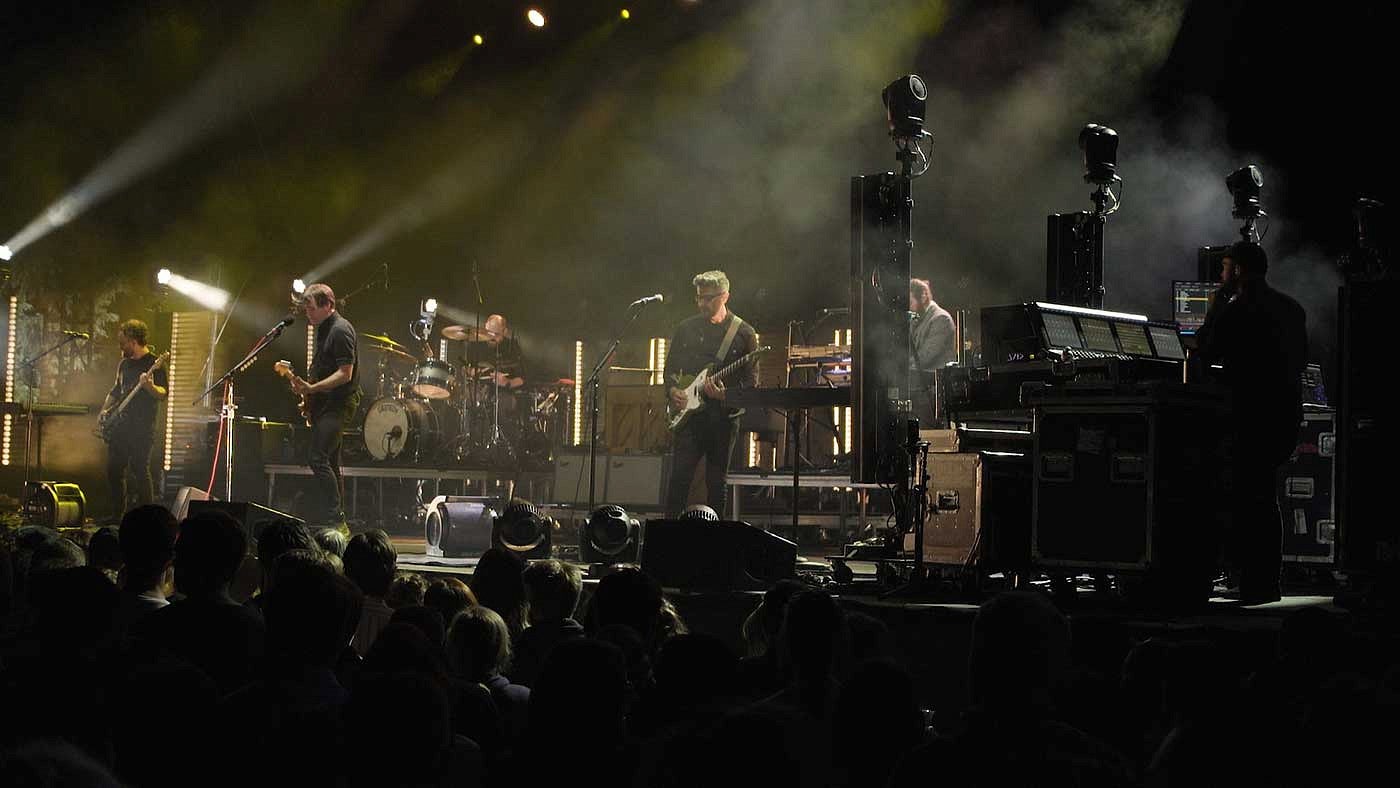
By the time DCFC hit the recording studio in 2018 for its ninth studio album, Thank You for Today, Depper was an integral part of the group. He is even credited with co-writing the album’s first single, “Gold Rush,” though he downplays his involvement.
“Ben is clearly the main songwriter of the band, and comes to the band with very fully formed songs,” Depper says. “In terms of my own contribution, they tend to be more of an arrangement, variety, commenting on chords or the bridge or something like that.”
As for Depper’s own immediate future, he is eyeing a return to the studio in 2020 to record a follow-up to his debut solo album Emotional Freedom Technique—a debut album that is technically his second, as he previously recorded a note-for-note remake of the Paul McCartney solo album Ram, where he played every instrument and taught himself the ins and outs of album production along the way.
“Those production and recording technique [classes at the UO] would’ve been very helpful,” says Depper.
He writes most of his songs on the keyboard, finding it more harmonically expressive than the guitar—news that would be music to the ears of the UO instructors who helped reintroduce him to the piano as a college freshman.
Fifteen years after his graduation, after he transferred out of the School of Music and Dance because was burned out and didn’t think a music degree would lead to rock stardom, Dave Depper is taking what he learned in the UO’s classrooms and applying it on stages around the world.
“The music program [at the UO] is amazing,” Depper says. “I learned so much of what I do now from it.”
